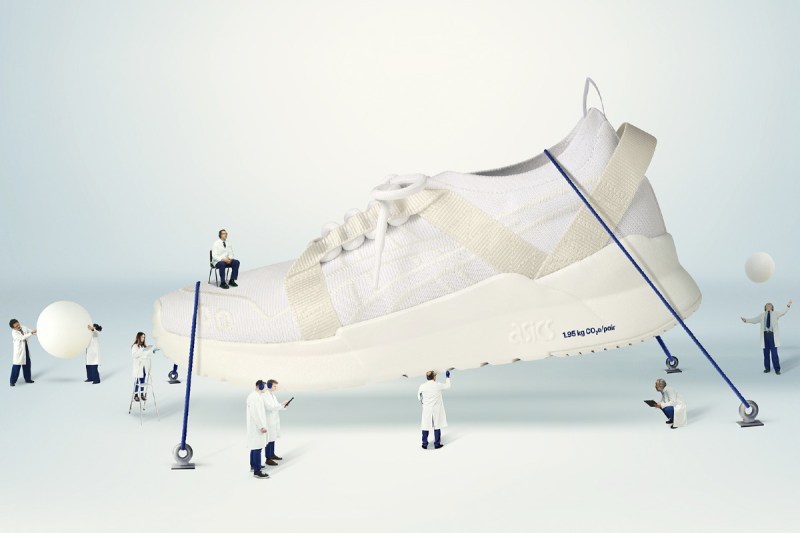In the wake of crises arising from climate change, companies publicly and privately owned are making commitments to ensure the future health of Earth’s air, water, and ecosystems. Not coincidentally, the athletics and outdoors firms that produce products and services to utilize our environment are leading the way. Recently, one of the largest athletic shoe makers in the world publicly joined that march towards sustainability.
Asics dropped plans for releasing its the Gel-Lyte III CM 1.95 sneaker in 2023. Named for its just 1.95-kilogram carbon dioxide emission across the product’s life cycle, these are even lighter than the Adizero x Allbirds 2.94 kilogram low carbon shoes currently on the market. This marks a significant step toward the Japanese shoe company’s commitment to achieve net-zero emissions by 2050.

“Our society is facing a huge number of environmental challenges. These challenges will affect the ability of future generations to take part in sports and achieve a sound mind and a sound body. That’s why we at Asics are committed to doing our part to ensure the long-term future of our planet. To be of sound mind and sound body, you need a sound Earth to move on,” Asics CEO Yasuhito Hirota said in a September 15 presentation.
The Asics Gel-Lyte III CM 1.95 arrives after over 10 years of research and development, beginning first with a 2010 Massachusetts Institute of Technology partnership to determine a better way to accurately measure the carbon dioxide impact of a product’s entire life cycle.
Instead of one “Eureka!” moment, this research required diligence to test and measure output before fine-tuning and reapplication of new methods in response to results. In other words, Asics engineers made hundreds of incremental gains across the four key stages of the product life cycle (materials and manufacturing, transportation, use, and end-of-life), identifying each small difference to eventually accumulate towards a massive impact. More than a decade after this cooperative began, Asics can now offer unheard of levels of sustainability while maintaining the quality of its running shoe.
Among the new Gel-Lyte III sneaker’s innovative features are a new carbon-negative foam melded from a fusion of bio-based polymers derived, in part, from sugarcane. This material combines to form part of the midsole and sockliner, delivering high-level comfort and quality in a sustainable way. Designers also included recycled and solution-dyed polyester in the shoe’s main upper and its sockliner mesh, reflecting the Asics target of 100% recycled polyester sourcing by 2030. The CM 1.95 even utilizes simple measures like tape to enable less material usage, increasing renewable energy throughout the manufacturing phase.
The ground-breaking new sneaker is a milestone in Asics’ long-term ambition to help conserve the world for future generations to continue experiencing the uplifting power of sport on the mind. The Gel-Lyte III CM 1.95 shoe will be widely available to buy in stores and online in autumn/winter 2023.



